My Vote My Voice: accessible voting campaign launches in Parliament
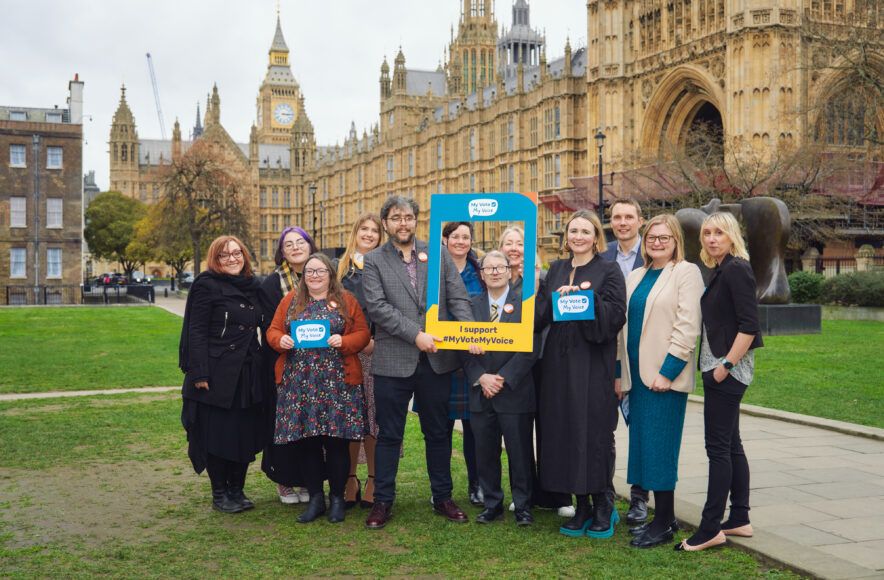
Studies suggest that voter turnout among people with learning disabilities is as much as 40% lower than that of the general population.
This has to change.
That’s why United Response has teamed up with Mencap, Dimensions and Ambitious about Autism to deliver My Vote My Voice – a first of its kind campaign to make voting accessible for all.
During our campaign we will be producing easy read guides to politics and voting, running accessible political events, and developing leading research. We want to work together to make sure everyone can use their vote.
Parliamentary launch
We went to Parliament to launch our campaign in the heart of British democracy.
People with learning disabilities, autistic people, MPs and social care leaders discussed why every single person deserves the chance to exercise their democratic right. We were delighted to have many MPs attend, including our event sponsor Alex Norris, Derek Thomas and Lisa Nandy.
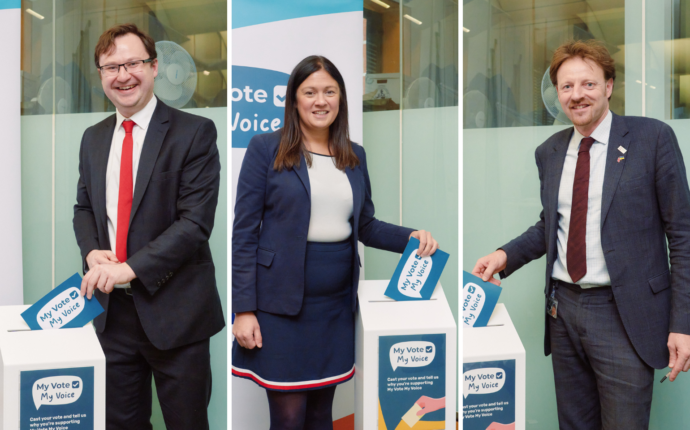
Photography by Emile Holba
During the event people with learning disabilities and autistic people took to the stage to share why this campaign matters, and why MPs and organisations should join the fight.
One of these speakers was our very own Alex Hughes, who attends our Enterprise service in Richmond. Alex explained to MPs and social care leaders why we need to achieve voter equality so that everyone can have their voice heard:
Progress needs to be made to include people with disabilities so they can vote with honour, respect and dignity.
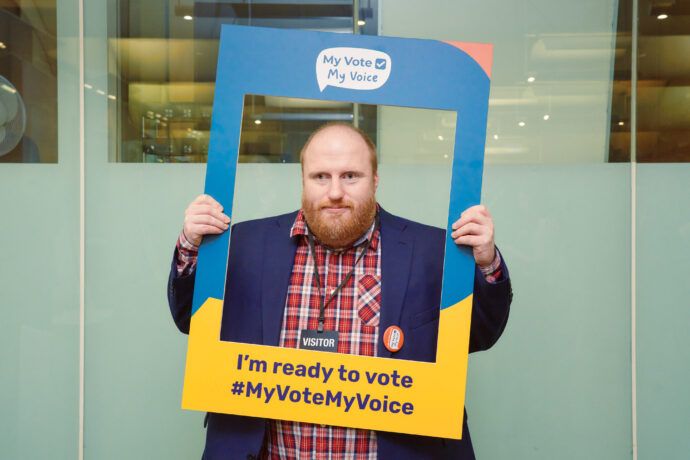
Photo by Emile Holba
Kayleigh, who also attends the Enterprise, took to the stage and stressed that people with disabilities need to use their voice and demonstrate their rights:
Nobody has any right telling us not to vote. We’ve all got a right because of our disability.
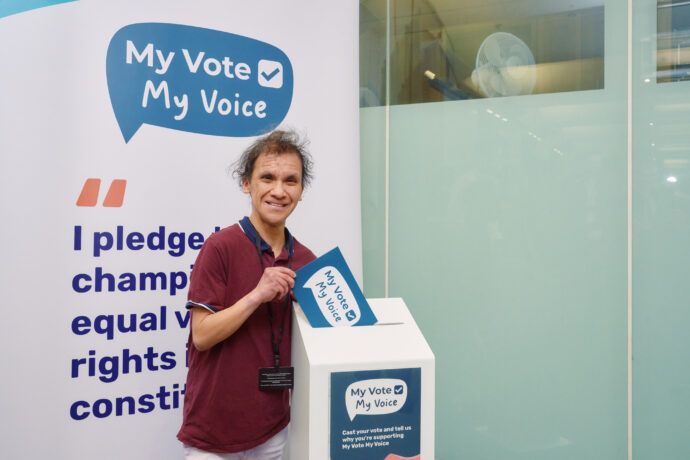
Photo by Emile Holba
People with learning disabilities have shaped our My Vote My Voice campaign by supporting the development of our website, joining our steering group, and most importantly, sharing their experiences with some of the top officials in government.
Barriers to voting
Research suggests that 80% of people feel that polling stations are difficult for people with a learning disability to use.
Speaking about his experience supporting people to vote, Matthew Campbell, a United Response Enterprise Manager, told us:
I’ve supported several people going to the polling station… Sometimes the people I’ve supported didn’t want to go until later in the evening because they were a little bit scared that they might get discriminated against.
There’s been real tension if I’m walking in with somebody who might be non-verbal or physically disabled, and there’s a pushback from some of the people running the station and even members of the public.
Other challenges faced by people we support include the accessibility of political materials, with many politicians not producing easy read manifestos. As Alex explained, easy read materials are vital. They ensure that people with learning disabilities are treated with decency.
As part of the campaign we will be producing accessible resources and political events, so that everyone can feel confident casting their vote.
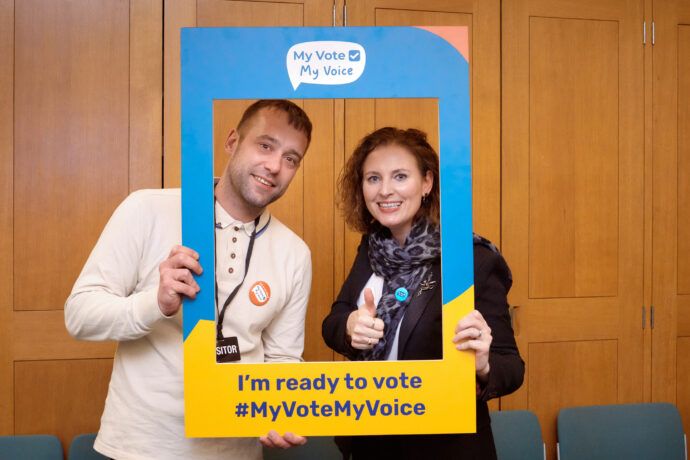
Photo by Emile Holba
Accessibility matters
At its heart, our My Vote My Voice campaign is about making voting accessible. If voting is inaccessible, then we just don’t live in a democracy.
Alex explained:
Accessibility should be ingrained in society. If you say you want progress and for more people to have their voice heard, you’re basically torturing people when you don’t make that happen. Accessibility needs to be there.
A vote is a step towards change, and for people to be heard.
Read more about how the campaign started here.
- Ali Mills is Communications and Engagement Officer for United Response